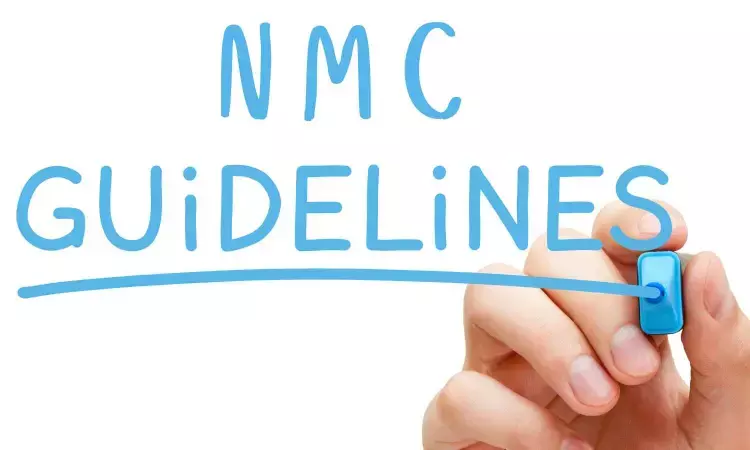- Home
- Medical news & Guidelines
- Anesthesiology
- Cardiology and CTVS
- Critical Care
- Dentistry
- Dermatology
- Diabetes and Endocrinology
- ENT
- Gastroenterology
- Medicine
- Nephrology
- Neurology
- Obstretics-Gynaecology
- Oncology
- Ophthalmology
- Orthopaedics
- Pediatrics-Neonatology
- Psychiatry
- Pulmonology
- Radiology
- Surgery
- Urology
- Laboratory Medicine
- Diet
- Nursing
- Paramedical
- Physiotherapy
- Health news
- Fact Check
- Bone Health Fact Check
- Brain Health Fact Check
- Cancer Related Fact Check
- Child Care Fact Check
- Dental and oral health fact check
- Diabetes and metabolic health fact check
- Diet and Nutrition Fact Check
- Eye and ENT Care Fact Check
- Fitness fact check
- Gut health fact check
- Heart health fact check
- Kidney health fact check
- Medical education fact check
- Men's health fact check
- Respiratory fact check
- Skin and hair care fact check
- Vaccine and Immunization fact check
- Women's health fact check
- AYUSH
- State News
- Andaman and Nicobar Islands
- Andhra Pradesh
- Arunachal Pradesh
- Assam
- Bihar
- Chandigarh
- Chattisgarh
- Dadra and Nagar Haveli
- Daman and Diu
- Delhi
- Goa
- Gujarat
- Haryana
- Himachal Pradesh
- Jammu & Kashmir
- Jharkhand
- Karnataka
- Kerala
- Ladakh
- Lakshadweep
- Madhya Pradesh
- Maharashtra
- Manipur
- Meghalaya
- Mizoram
- Nagaland
- Odisha
- Puducherry
- Punjab
- Rajasthan
- Sikkim
- Tamil Nadu
- Telangana
- Tripura
- Uttar Pradesh
- Uttrakhand
- West Bengal
- Medical Education
- Industry
No inspection beyond Day 1, randomisation software to decide which assessor will inspect which medical college

New Delhi: With an aim to reduce human intervention, the Medical Assessment and Rating Board (MARB) of the National Medical Commission (NMC) has decided that a 'Robust Randomization Software' will choose the persons who will assess the medical colleges.
This has been specified by the NMC Board in the newly released guidelines for the assessment and rating of medical colleges. These guidelines will be implemented next year i.e. the academic year 2024-2025.
The Medical Assessment and Rating Board (MARB) of NMC has the responsibility to conduct regular assessments of medical colleges. It also grants recognition to the medical institutes which fulfill the requirements of the Commission. In order to ensure that the standard of medical education and training is maintained, surprise inspections are also conducted by NMC.
Releasing the new guidelines, MARB discussed at length about the Assessment Process, Application Fee, Stepwise process for Accreditation, Sanctions and Penalty, Assessment and Rating, and Redressal and Appeal procedures.
While discussing the assessment process and the procedure to select the assessors, NMC referred to 'Robust Randomization Software' that will be used for the selection of the date of assessment and selection of assessors. MARB also discussed the code of conduct for the assessors and the criteria for assessor selection.
Computer-based selection of assessors:
MARB mentioned in the guidelines that in order to reduce human intervention, Robust Randomization Software will be used for the selection of the date of assessment and selection of assessors. Although the inspection will be a surprise, the list of medical colleges that will be assessed will be published on the NMC website.
It further clarified that all inspections (UG & PG courses) for a college will be conducted on the same day. For the UG course, the assessment will be conducted for one day by a team of 5 assessors (In case of non-availability of 5 assessors, MARB may allow inspection to be conducted by at least 3 assessors) and for PG courses, the assessment will be conducted for one day by a team of 2 assessors per specialty. (In case of non-availability of two assessor per specialty for the PG course, MARB may allow inspection to be conducted by one assessor).
NMC added that the team of assessors will conduct the assessment to examine the infrastructure, quality of medical education, faculty, AEBAS data, clinical indicators, and financial status of the college to ensure compliance with the latest NMC guidelines. The Assessment team may also conduct interviews with staff and all students during the assessment process.
The Commission has exempted the medical colleges established by the State/Central Government (recognized for MBBS for a period of 5 years), registered for additional PG seats from undergoing physical inspection, based on AEBAS data and other objective and numerically measurable parameters.
"Physical Inspection will be conducted for the application received for additional PG seats by private medical colleges. Physical inspection will also continue for Central/ State Government and Private Medical colleges applying for fresh PG seats and recognition of PG course," stated the guidelines.
As per the guidelines, after the inspection, the information will be collected and documented on the NMC portal by the assessor as per the latest assessor guidelines available on the Commission's website.
"It would be mandatory for the inspection team to ensure the duly signed & endorsed (by the college management) report is uploaded on the portal before inspection team departs from the hospital," MARB highlighted in the new guidelines.
Discouraging inspection beyond one day, NMC has allowed it in the rarest of rare cases only on account of force majeure. In all such cases, the same must be documented and immediately communicated to MARB and written approval must be sought for seeking any extension, the guidelines stated.
"In case of deficiencies being found, the same will be communicated to the medical college granting sufficient time to report compliance after rectification of the deficiencies. Following this surprise compliance verification inspection will be conducted in case of the establishment of new medical college / increase in admission capacity for UG courses," it further added.
The new guidelines released by NMC also include the format for the Essentiality Certificate, Format for Consent of Affiliation, Format for Consent of Affiliation for increase in seats, other formats for UG and PG assessment forms, review forms for UG and PG courses, UG scrutiny form, PG scrutiny format, and Assessor self-declaration form.
Medical Dialogues last year reported that professors and associate professors from Government Medical Colleges can be made Assessors and Experts of the National Medical Commission and at that time, the institutes are required to relieve them, the apex medical education regulatory body had announced and NMC asked for nominations from the institutes.
M.A in English Barsha completed her Master's in English from the University of Burdwan, West Bengal in 2018. Having a knack for Journalism she joined Medical Dialogues back in 2020. She mainly covers news about medico legal cases, NMC/DCI updates, medical education issues including the latest updates about medical and dental colleges in India. She can be contacted at editorial@medicaldialogues.in.



